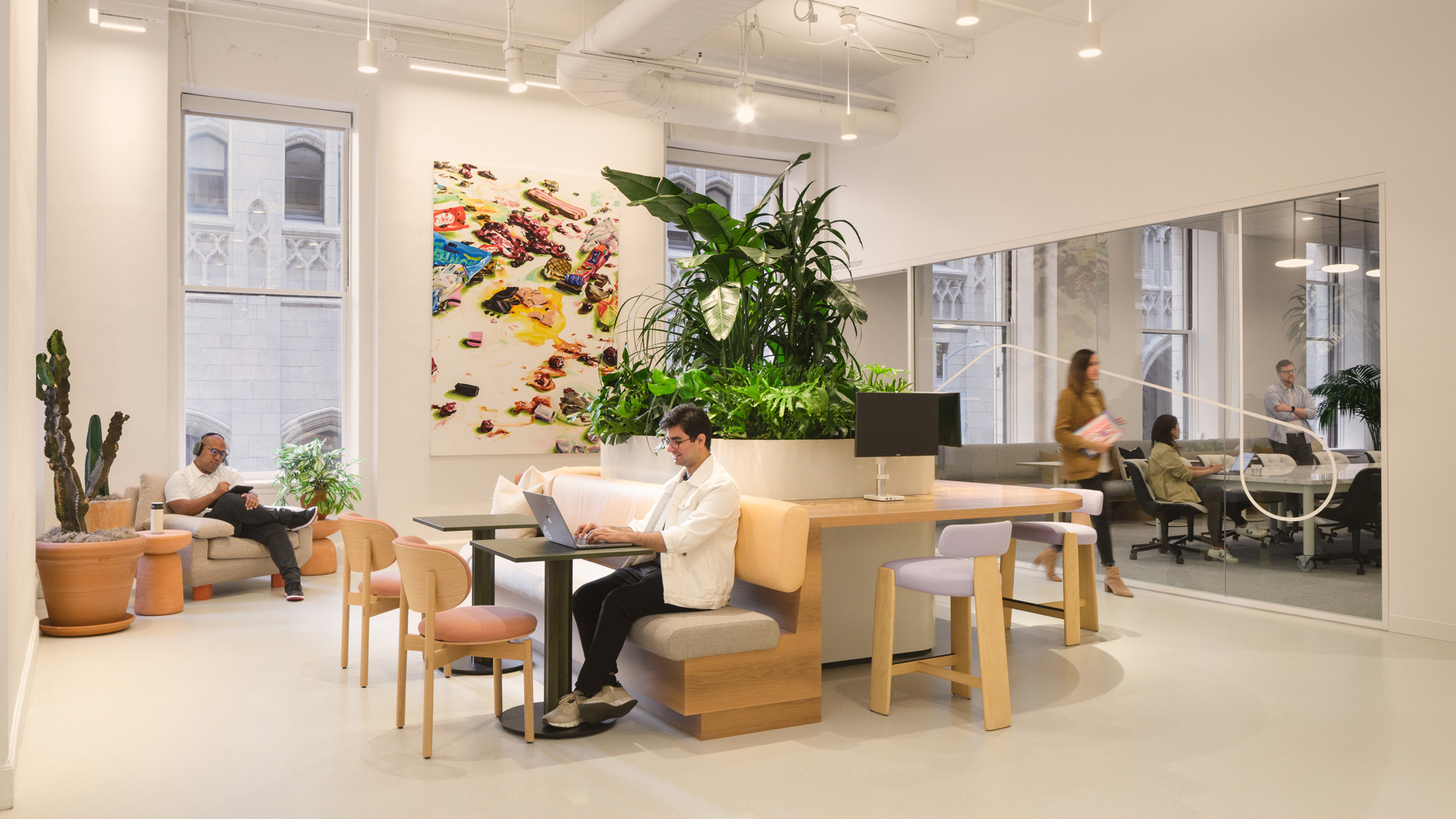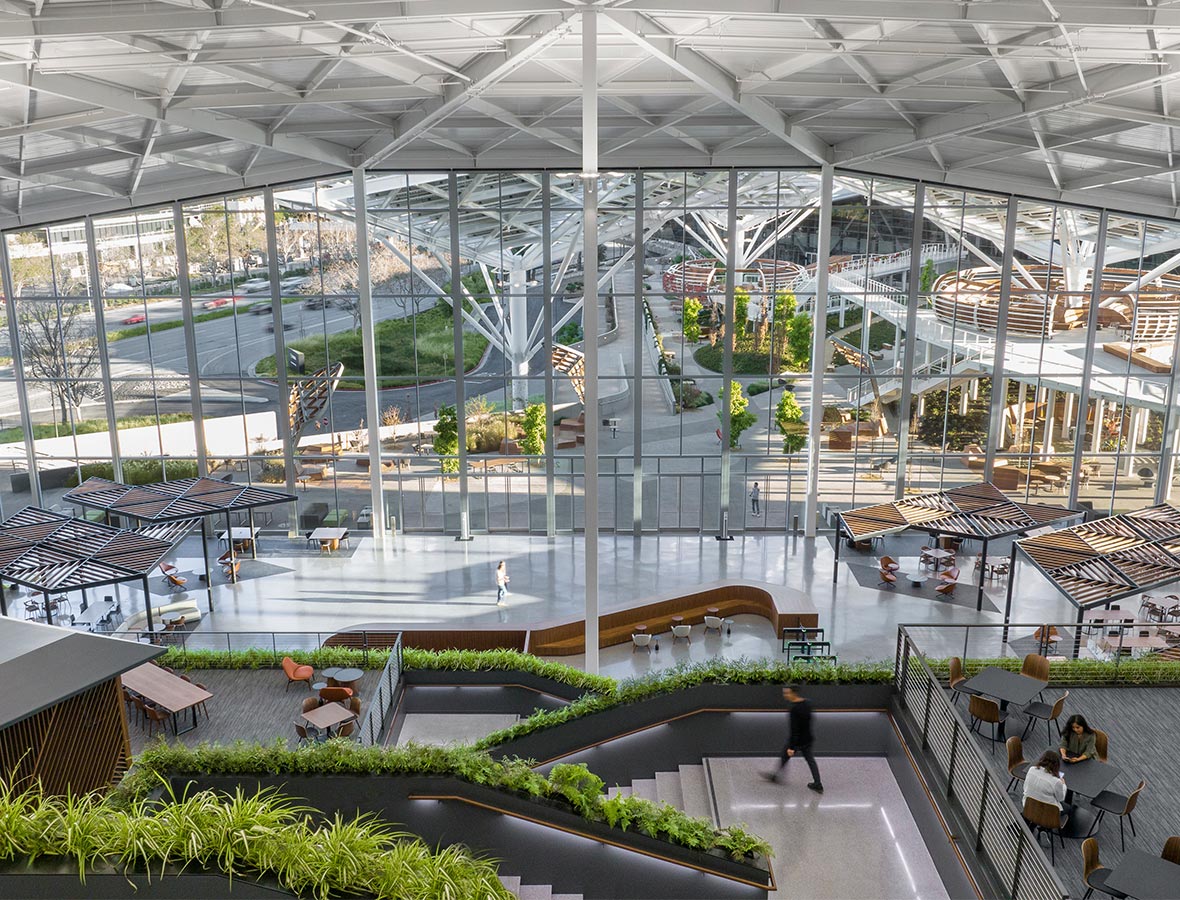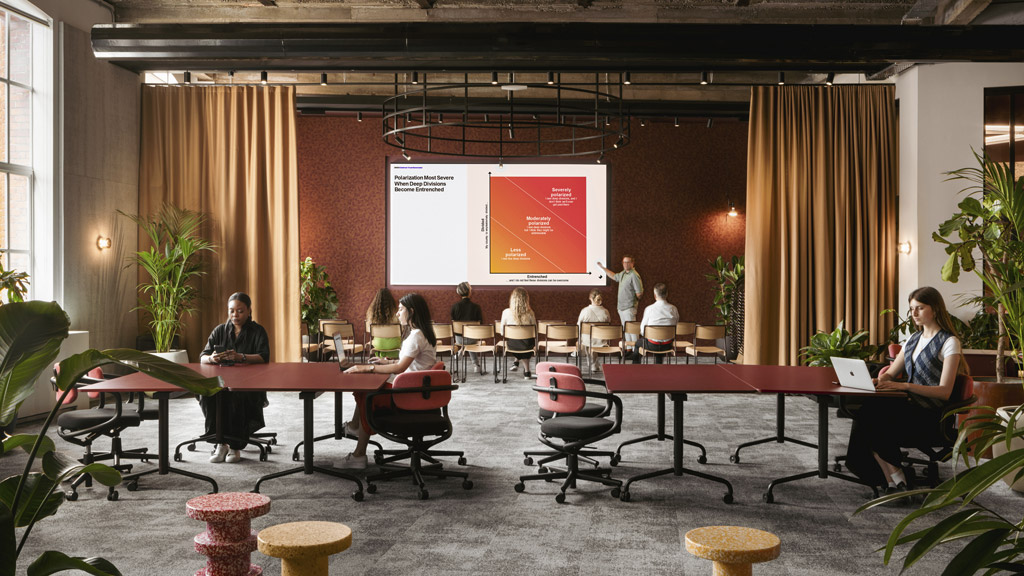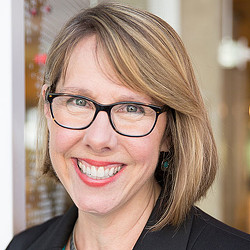10 Workplace Trends for 2025: What’s In and What’s Out?
October 30, 2024 | By Janet Pogue McLaurin and Louis Schump
The workplace is evolving beyond a collection of experiences and becoming a space designed to foster intentional transformations. This is the new Transformation Economy, where the emphasis shifts from what we do to who we become. In the Transformation Economy, the focus is on motivating and inspiring individuals to create lasting change. It’s about workspaces that connect with people on an intensely personal level. High performing companies are dedicated to helping employees grow, evolve, and achieve their fullest potential — making work not just a place to earn a living, but a place to transform personally and professionally.
With this new focus in mind, here are 10 emerging workplace trends to look for in 2025:
In: Immersive Environments | Out: Instagrammable Moments
Immersive experiences engage all the senses, drawing individuals into narratives that resonate personally and leave a lasting impact. They promote meaningful engagement that can’t be captured in a single static photo op. Organizing what employees hear and see in the workplace into distinct and immersive zones is essential to support interaction and connection, focus and concentration. Touch and smell are also included in the workplace experience. Just like good storytelling, which releases feel-good hormones, a thoughtfully designed workspace engages all the senses by creating emotional connections and enhancing comfort, belonging, and overall well-being. OUT are the one-dimensional “instagrammable moments” that focus solely on snapshots for social media.
In: Intention | Out: Variety for Varieties Sake
Choices made for me, my team, and my business unit? No thanks! Assuming everyone behaves in accordance with the org chart is a big miss. If I wake up on the wrong side of the bed, I might crave a space that’s totally unrelated to my role, generation, or team. Companies are now focusing on understanding individual needs and preferences to create a more personalized and empowering work environment. Whether it’s flexible work hours, custom professional development, or tailored wellness programs, allowing people to make these intentional choices makes them feel valued and supported, ultimately leading to higher satisfaction and engagement. This approach also drives organizational success by tapping into each team member’s unique strengths and aspirations. OUT are too many random choices for the sake of simply providing variety.
In: Participation | Out: Presence
Evolving our company cultures into proactive, innovative, and resilient powerhouses requires we shift from mere presence to active participation. Forget badging in and then badging out — be fully present and involved. Work, for many of us, is a team sport. In acknowledgment of that many companies are purposely creating environments that actively support sharing ideas, taking initiative, and engaging with colleagues. This approach builds a more dynamic and cohesive team. By prioritizing engagement over attendance, organizations are creating workplaces where employees are inspired to bring their A-game every day. OUT is simply being present at the office.
In: Ours | Out: Mine
By pooling resources and dedicating square footage to shared needs and tasks, companies can offer enhanced amenities that benefit everyone. This includes focus areas for concentrated work, multipurpose zones that adapt to various activities, and spaces that foster community engagement. Shared spaces often come with better technology, making collaboration and connectivity seamless. This approach not only maximizes the use of physical space but also promotes a sense of community and teamwork, creating a more dynamic and supportive workplace for all. OUT are those exclusive “me” spaces that can’t be shared and leveraged.
In: Workpoints | Out: Desks
The shift to flexible workpoints represents a seismic change in how we utilize office space. Instead of assigning each employee a desk for their singular use every day, workpoints are versatile work settings that can be used by anyone as needed throughout the day. This approach creates a dynamic and collaborative environment, letting employees pick the perfect spot for their task (or mood), whether it’s a quiet corner for deep focus, a collaborative area for team meetings, or a comfy lounge for casual check-ins. By optimizing space and promoting mobility, workpoints make the office a more engaging and effective place to work for everyone whether in the office or out. OUT are the dedicated desks or workstations of the past.

In: Team Personalities | Out: Org Chart Seating Plans
Just because your sales and copywriting teams report to the same VP doesn’t mean they should sit near each other. The shift to sitting with teams that share similar workstyles is an emerging trend aimed at boosting productivity and sense of community. According to Gensler’s Global Workplace Survey 2024, 82% of workers with the strongest relationships often sit with their teams in the office. These employees are twice as likely to be aware of what their neighbors are working on compared to those with weaker relationships. This proximity creates a more cohesive and dynamic work environment, where folks can easily share ideas, provide feedback, and support each other. Let teams with similar workstyles and resource needs co-locate and see the magic happen. OUT are seating plans which reflect the organizational chart.
In: Co-Creation | Out: Meetings
Co-creation is revolutionizing how we work together, bringing a collaborative approach where employees, customers, and partners join forces to create solutions, products, or services. These interactive sessions tap into diverse perspectives and expertise, supercharging ideas, innovation, and inclusivity. By involving everyone in the process, co-creation builds a sense of ownership and leads to more effective, well-rounded outcomes. OUT are boring meetings and Zoom calls with report outs and presentations on the agenda.
In: Authentically Local | Out: Global Standards
Companies are embracing authentically local designs reflecting the unique culture and vibe of each office location — whether Brooklyn or Austin, Dubai or Cincinnati. Each location may include the same programs but that is where the similarity ends. This shift boosts employee morale and fosters a deeper connection to the community. Imagine walking into an office that feels like a true extension of its city, with local art, flavors, and flair. By celebrating local identity, businesses make every office a place where employees feel at home and visiting staff delight and enjoy. OUT are corporate-branded, cookie-cutter global standards that feel and look the same everywhere.
In: Connector | Out: Insulator
Workplaces that are deeply integrated with their surroundings make the best neighbors. Gone are the days of offices or campuses providing all the amenities required by their employees 24/7. Companies are now designing spaces that engage and enrich the local community. This shift is evident in places like Hudson Square in New York City, where new developments blend with the urban fabric and create vibrant and accessible indoor and outdoor spaces. By embracing their communities, these workplaces contribute to the overall vitality and resilience of their neighborhood. OUT are insular corporate environments that shun their neighbors.
In: Everyone | Out: Average
Creating inclusive spaces is good for business. Inclusivity goes way beyond physical abilities, embracing a full range of cultural, age, size, and racial differences. This means shifting away from designing for to designing with — actively engaging those with lived experiences to ensure their voices are heard and needs met. When workplaces are crafted with input from diverse perspectives, they transcend function and become places where everyone feels seen and valued. After all, one size fits none, and the best workplaces are those that celebrate diversity. OUT is designing for the average employee, assuming everyone has the same needs. They don’t.
In 2025, the mantra is clear: “I love it!” is in, and “good enough” is out. Workplaces must now be anticipatory and engaging, earning every commute every day. Just like dining out should surpass the experience of eating at home, commuting to an office needs to be a compelling destination worth the trip. Spaces that engage all the senses and anticipate your needs — whether you’re in a great mood or having a rough day — are the ones we fall in love with. These are the places that make us excited to come to work, creating environments that are not just functional, but truly delightful.

For media inquiries, email .


